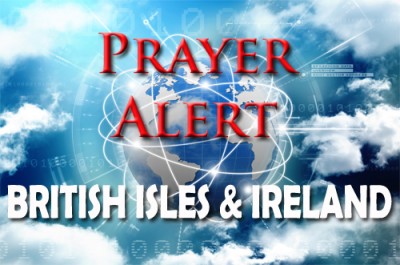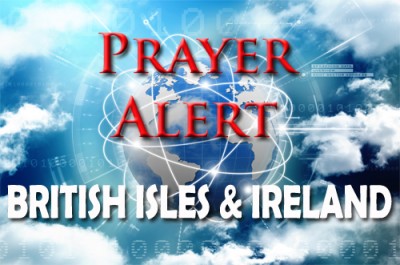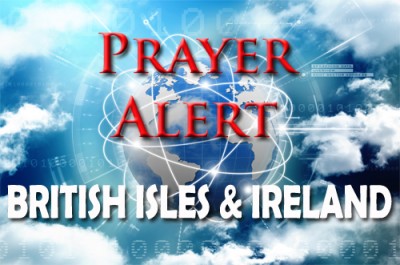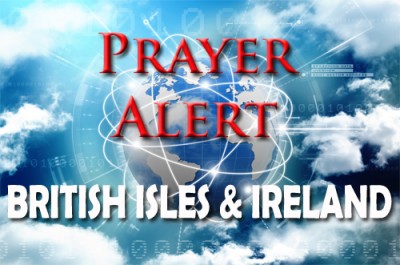Portion of a reflection on today’s Church
13 Apr 2018Jesus, Paul and John warned of counterfeit spiritual activity and false doctrine in the last days - Christians will fall away. The following are observations from David Noakes - It is of vital importance in these days that we are alert to the dangers of false teaching. Those of us who teach must be diligent to declare the whole counsel of God; it was only on that basis that Paul was able to declare ‘I have not hesitated to proclaim to you the whole will of God’ (Acts 20:27). He was warning the Ephesian church elders to be equally diligent saying that we in the church need to re-examine our diet of the seemingly-endless flow of books and magazines, and to ensure that above all we are fully acquainted and familiar with the whole of the Bible. Only by knowing what is in God's word can we walk in safety.
Media
13 Apr 2018Media Bias. Anti-Christian television and cinema agendas. Fake news. Data hacks. Sexting, Facebook, Snapchat. In a growing secular media environment we need to pray for our Christian families to learn how to protect themselves from digital deception and manipulation through the internet and to have God-given insights when watching news channels. Ask God to give us wisdom and discernment when we are about to make a wrong internet choice. Ask him to give us better sensitivities when deciding what screen we watch. Ask Him to raise up more Christian play writers, filmmakers, media programmers, artists, and computer game programmers. May he convict us if we choose unwise media options. May this generation help our children and grandchildren to develop the wisdom and discernment to navigate a disturbing media landscape. Pray for organisations like The MediaNet who support, encourage and inspire Christians who work in, and with, the UK media.
Declaration for our Government
13 Apr 2018The following was posted online by Passion for the Nation on 9 April. ‘So be wise as serpents, and innocent as doves’. In the Name of Jesus, we declare the political figures, the diplomatic service and the intelligence services in this nation will be marked out by their wisdom, authority and compassion, that they will be wise as serpents, carrying no self-serving agenda. Even as ‘A gentle answer turns away wrath, but a harsh word stirs up anger.’ (Proverbs 15:1) we declare our government will be slow to speak, slow to anger and their words will produce the fruit of righteousness for this nation and the nations. Now, in the Name of Jesus, over the current confrontation between Russia and the UK, we declare truth will emerge, ungodliness will be revealed.
UK: Upholding the Chemical Weapons Treaty
13 Apr 2018In 1997 the Chemical Weapons treaty came into force. Its full title is ‘The Convention on the Prohibition of the Development, Production, Stockpiling and Use of Chemical Weapons and on their Destruction’. In 2013 Syria agreed to the treaty. On 7 April 2018 Syrian activists, rescue workers and medics reported toxic chemicals dropped on Douma with Assad’s approval. It is believed not to be Syria’s first violation of the treaty. At the time of writing, because of chemical weapons use in Syria, Russia and America are threatening opposing military action over Syrian ground and airspace. Theresa May's cabinet has ‘agreed on the need to take action’. They are also considering military options with US and French allies. Key prayers for our MOD - What British forces might be used? The targets. What’s the overall strategic aim? Key prayers for Whitehall - How to avoid escalating the conflict? See World article 1
Puerto Rico: Hurricane Maria brought Revival
13 Apr 2018Category 4 Hurricane Maria destroyed Puerto Rico in September 2017 and paved the way for revival. Puerto Rican George Santiago returned from the US in summer 2017. Two months later Hurricane Maria turned the mountain stream into a raging river, the town was in shambles without access to food or water, the people were paralysed. Through Southern Baptists, he provided food, water and even washing machines. People asked him ‘Why are you doing this?' His answer included sharing the Gospel. Since the storm, at least 50 people have come to Christ and Santiago has started what he calls a ‘baby church’ for new believers. It's all evidence of God's master plan at work. ‘He placed us in Puerto Rico at the right moment, the perfect moment for a church to give birth,’ he said. Santiago is not alone. Maria has paved the way for enormous spiritual growth in the region.
Salisbury - Service of cleansing and celebration
13 Apr 2018The Zizzi restaurant and sites across Salisbury remain cordoned off after Sergei and Yulia Skripal were found poisoned by Novichok nerve-agent in the area last month. The Bishop of Salisbury is inviting members of the public to a special service to celebrate the community life of the city at St. Thomas’ Church at 3 pm on Sunday 15 April. The service will include city leaders in business and community, plus members of the emergency and public services to give thanks for the work they do and pray for those affected by the attack. At the conclusion of the service they will go in procession to the site where the Skripals were found for a ceremony to symbolically ‘reclaim Salisbury for the common good’. The service will include hymns and prayers from both Russia and this country, as well as readings from the Christian Bible - the grounding of both cultures.
North Korea: missionaries on the border
06 Apr 2018Missionaries in north-eastern China are still engaged in the dangerous work of spreading the Gospel across the border to North Korea, even though at least ten missionaries and pastors have mysteriously died in recent years. They keep at it because they believe their converts will help change religious practice in the cloistered North, which equates Christianity with US-led Western imperialism. The border missionaries provide their North Korean visitors with room and board, and those escaping with places to hide. In return, they ask them to memorise Christian prayers and covertly share what they've learned when they return home.
Yulia Skripal getting stronger
06 Apr 2018In the midst of a depressing and sometimes frightening diplomatic crisis, with international media and government accusations and statements, the UK police issued a positive statement on 5 April. It was a message from Russian spy Sergei Skripal's daughter Yulia: ‘I woke up over a week ago now, and am glad to say my strength is growing every day.’ She also said she was grateful for the many messages of goodwill and the care she had received. Mr Skripal, 66, remains critically ill but stable.







